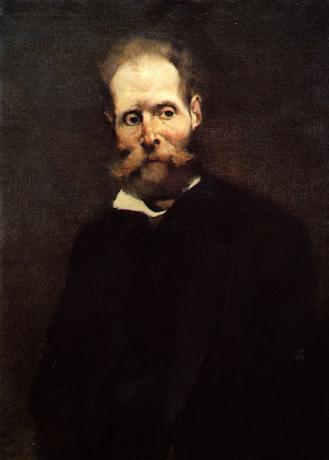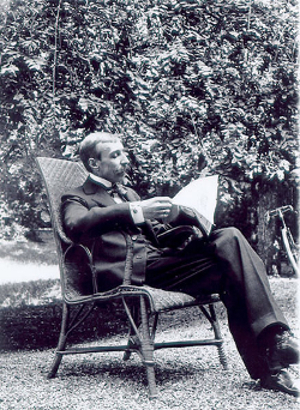A simple question emerges as the driving force behind this discussion that we are currently engaged in: poem or poetry? It can be said that even though these terms are used recurrently, many still end up confusing and thinking that these are two synonymous elements - this conception is materialized in an erroneous way, mistaken.
Well, dear user, we would like to make it very clear that in order to understand about such definitions, we have to be aware of a fact: there are those texts in which the denotative sense of language prevails and those in which the subjective look emerges from the sender and the receiver, about everything. In this sense, it is equivalent to saying that poetry it refers to that circumstance of communication in which some intentions focused on subjectivity, on multiple interpretations, prevail. In the meantime, the resources coming from the issuer itself become fully valid, given that the objective is not to inform, instruct, but to entertain, provoke emotions, awaken feelings. This is what we call the poetic function of language, because sound, the combination of rhymes, word play, the use of figures of speech, the use of images, prevail in it. Based on this principle, we must agree that the
poetry it is defined as a state of mind, enjoyment, sentimentality.From such a state, that is, from such an intention demarcated on the part of the writer, comes what we call poem, considered, therefore, a unit of poetry. It is a construction that differs from what we conventionally find in a prose text, that is, characterized by a beginning, middle and end through paragraphs. Contrary to such construction, the poem is effected through verses, which, once put together, make up what we call of stanza. Remembering that these verses can be seen as being each line of the poem.
We believe, therefore, that such elucidation tends to become even more effective when we start with concrete examples, which enable us to demarcate the presence of the aforementioned elements. So let's see:
separation sonnet
Suddenly from the laughter came tears
Silent and white as the mist
And from the joined mouths there was foam
And from the outstretched hands came the astonishment
Suddenly from the calm came the wind
Which of the eyes blew out the last flame
And from the passion became the presentiment
And from the still moment, drama was made
suddenly no more than suddenly
What became a lover became sad
And from alone what was made happy
became the close, distant friend
Life became a wandering adventure
Suddenly, no more than suddenly
Vinicius de Moraes
We are faced with a poetic construction demarcated by two quartets and two triplets, which makes us realize that it is a sonnet. In it we verify the presence of other elements, such as the sound, the materialization of rhymes, among others.
Now, when we stick to some texts, such as the opinion article, the editorial, the scientific texts of a general form, among other examples, we are, without any doubt, finding that they are texts written in the form of prose, that is, they are structured in paragraphs and have a beginning, development and end. Given these attributes, we then move on to an example of an opinion article, written by Lya Luft, columnist for Veja magazine:
THE GOOD SCHOOL
My brilliant colleague Gustavo Ioschpe, one of the most lucid voices when it comes to education, wrote about what a good teacher is. I was already starting this article about what I think a good school should be, so here it goes.
First, the school has to exist. In Brazil there are incredibly few schools in relation to the real need.
There must be schools for all children, in all communities, the most remote, with qualities basic: not to exceed the number of well-accommodated students, and that they do not have to move for much far away; worthy facilities, ranging from tables to walls, roof, patio for fun and recreation, place for physical exercise and sports; decent sanitary facilities, kitchen to feed those who do not eat enough at home; someone with medical or nursing experience to assist those in need.
Do not stop now... There's more after the advertising ;)
In each classroom, naturally, a good shelf with books undoubtedly donated by the federal, state, municipal governments. And that the essentials are taught well there: arithmetic, good use of language, notions of history and geography so that they know who they are and where in the world they are located.
So far I have only talked about elementary education in less economically privileged schools. In communities that are more resolved in this sense, all of this will not only be good, but excellent, from the material part to very well-prepared teachers who are well-demanded and well-paid.
In the so-called high school, in addition to books, maybe computers, but – even if scandalizing some – I believe that these wonderful objects, which I myself constantly use, are not a substitute for a good teacher. And that, on this step of life, everyone is prepared for university, as long as they want to and can.
Because not everyone wants a university career, not everyone has the capacity for it: for them, excellent Technical schools, after which they can have more financial gain than most professionals liberals.
Teachers with master's and if possible doctorate, directors who know about administration, psychologists who know psychology, all with knowledge and attitude that students respect so that they can learn.
Finally, the university, which deceptively believes itself to be the only worthy destination for everyone (I've already mentioned technical courses that are getting better and more specialized each day). University needs to exist, but not in the abundance of elementary schools.
The multiplication of medical schools, for example, whose failures will have dramatic effects on human lives is incomprehensible and disastrous. We have many across the country where students do not study anatomy, as there is no vivarium, they do not have practical classes, as there is no teaching hospital. This is a frightening but very common reality that, it seems, is trying to be corrected.
These pseudo-faculties will leave students who fail the essential CRM tests, but who will eventually work without being able to attend to patients. Law schools swarm across the country, without qualified professors, without good libraries, training lawyers who can't even write reasonably, besides being ignorant of the laws
and disapproved by heaps in the very important OAB tests.
A similar thing would happen with poorly prepared engineering faculties, if any, where professionals need to leave professionals who guarantee safety in various works, buildings, houses, roads, bridges.
Note that here I commented just a few of the numerous existing courses, many with excellent level, but don't ignore those that are unable to function, and even so… they exist. In all these phases, at each level, include well-prepared, very dedicated, and decently paid teachers – a teacher is neither a priest nor a fakir.
What I write here is mere, simple, common sense. Everyone has the right to receive the education that puts them in the world knowing how to read, write, think, calculate, having an idea of what they are and where they are, and being able to aspire to grow more.
This is the duty of all governments. And it is our duty to expect this from them.*
The notion that can be drawn from the example given is that the way in which the discourse is structured results in a beginning, then it starts with a development of ideas, finally reaching a conclusion. In this way, we can see one of the countless examples of text in prose, that is, a text that is structured in paragraphs.
Remembering, however, that in literary language, that is, one in which the connotative sense prevails, we can find the form prosaic, but even so it doesn't assume the poetic character, as it happens in a short story, in a novel, in a literary novel, anyway.
* Text available at Veja – What a good school should be like
By Vânia Duarte
Graduated in Letters



